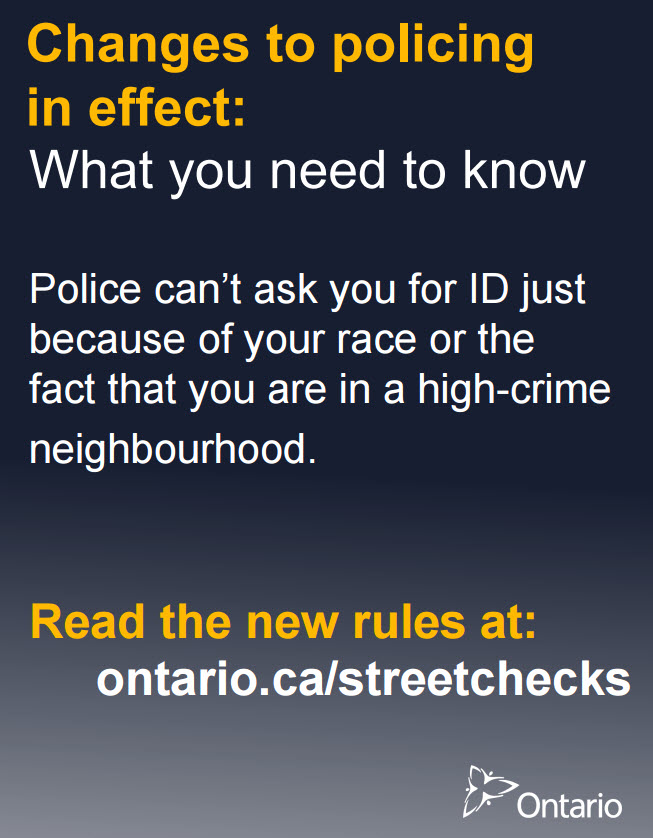

For the most up to date information on the Collection of Identifying Information please visit ontario.ca/streetchecks.
The rules and what they mean for you:
If a police officer asks you for ID in a situation when the rules apply, they must:
- have a reason, which cannot be:
- based on race
- arbitrary (not meaningful)
- only because you are in a high-crime area
- because you refused to answer a question or walked away
- tell you why they want your identifying information
- tell you that you can refuse to give identifying information
- offer you a receipt - even if you refuse to share information - that includes:
- the officer's name
- the officer's badge number
- how to contact the Office of the Independent Police Review Director, which handles complaints about police in Ontario
- who to contact to access personal information about you that the police service has on file
- keep detailed records of their interaction with you - even if you refuse to share information
If a police officer does not follow these rules, it is a Code of Conduct violation under the Police Services Act and they may be disciplined.
Exceptions:
In rare cases, if following the rules above could negatively affect an investigation, threaten public safety or force officers to reveal confidential information, police officers may not have to:
- tell you why they are asking for information - for example, the reason involves a tip from a confidential informant
- tell you that you have the right to refuse giving ID - for example, the officer suspects a car passenger may be a victim of human trafficking
- give you a receipt from the interaction - for example, the officer receives an urgent call for service and must quickly end the interaction
In these cases the officer must record their reason for not following the rule.
 I'd Like To
I'd Like To





 Subscribe to this Page
Subscribe to this Page